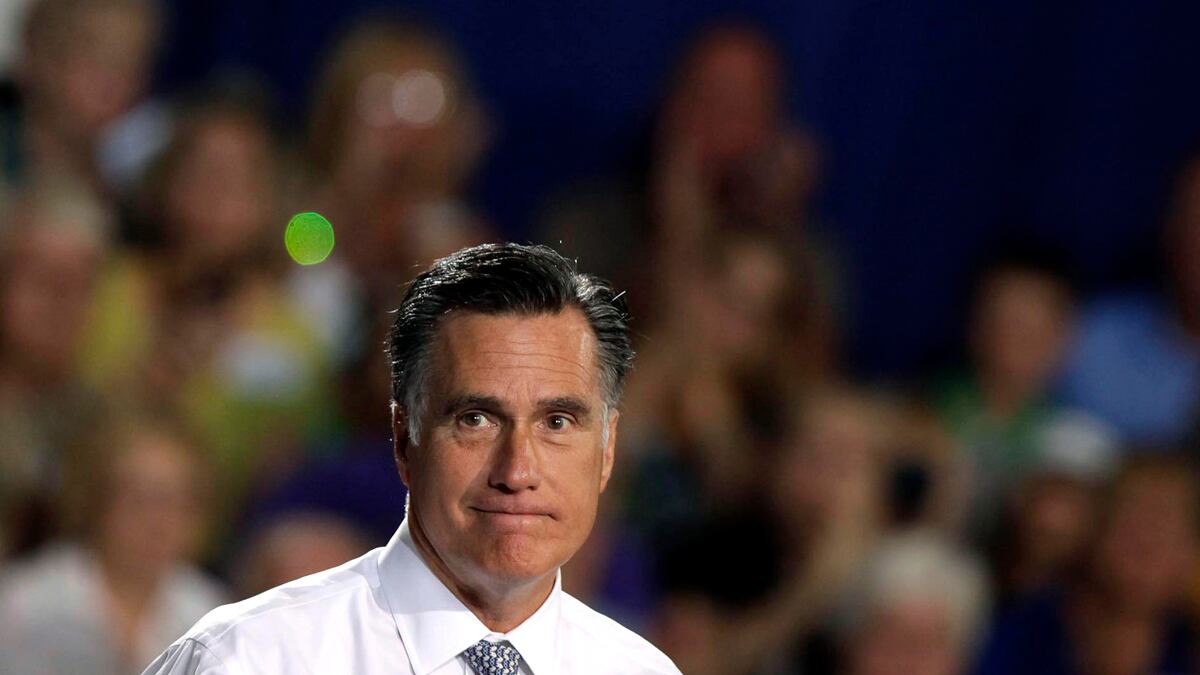How about you and I invest in a foreign company? Let’s say a German beer brewery. Good news: the company’s stock does well and pays us a dividend. Bad news: when we decide to bring our dividend back to the U.S., we’re hit with an American capital-gains tax of 15 percent.
Fine. That’s the cost of investing. But let’s say we want to go beyond beer. We buy a boatload of foreign stocks, bonds, and mutual-fund shares, and consolidate them: Prosecco stocks, Foxconn bonds, Spanish debt, all in one box. The box is too big, and would incur too many fees, for us to set it up with an account at a brokerage firm, so we need to form a corporation. Should we do that in America? No way. If we do that, we’ll be hit with another tax: U.S. corporate income tax on the entity itself.
That second tax hit, in a nutshell, is what drives a high-net-worth investor like Mitt Romney to set up shop overseas. And it’s incredibly common, not to mention totally legal. In the charged atmosphere of a tight election battle, Mitt Romney’s overseas holdings, from Swiss bank accounts to tax-shelter investment vehicles, have become one of the Obama campaign’s main lines of attack. “What is Mitt Romney hiding?” intoned a recent Obama campaign spot. “[It] makes you wonder if some years he paid any taxes at all.” Even top Republicans and the conservative National Review have called on Romney to release more of his returns to shed some light on his mysterious finances.
But even as Romney takes the drubbing, tax attorneys and legal experts point out that there’s an inherent logic to tax laws—both in the U.S. and abroad—that encourages investors to handle their money just as Mitt appears to have done. In fact, many wealthy investors would be stupid not to park their investments abroad. “We do it all the time,” said Doug Stransky, international tax partner at Sullivan & Worcester. Jeff Freeman, former KPMG senior manager and now head of a private global tax practice, says he has counseled “over a hundred” clients to do the same—wealthy and otherwise.

Here’s the basic idea: Let’s say you and I go into business as a partnership, on a sunny island that doesn’t charge income tax or withholding tax on employees. We’re not necessarily hiding assets. Our German brewery pays its corporate income taxes to the Germans, and when we eventually repatriate our own dividends back to the U.S., we pay the IRS our 15 percent in capital gains. But we’ve saved ourselves a third round of corporate tax on our big pot of money, because it’s not sitting in America.
Any tax shelter that has low or nonexistent corporate or capital-gains taxes will do: Bermuda, the Caymans, Panama, Monaco, San Marino, and, of course, Switzerland. Many of these jurisdictions also have looser compliance standards and require less-frequent regulatory filings, which can reduce the cost of doing business. These locales also benefit from the influx of business their tax laws invite and all of the associated economic activity. (If you’re doing most of your investing domestically, you may want to consider setting up shack in the states of Washington, Nevada, Wyoming, South Dakota, or Texas, which all have 0 percent personal income tax, capital-gains tax, and corporate tax.)
Experts in international tax compliance find the Romney furor “puzzling,” says Stransky. Legally “hiding” billions of dollars abroad is impossible, they say. All income in a Swiss bank account must be declared to the IRS in a foreign-bank-account form, which Romney filed in 2010. (At least—that’s the only complete year for which Romney has released his returns.) And all profits from foreign investment, like those earned by Romney’s Bermuda-based investment firm, would be declared and taxed as soon as they return home. True, many offshore vehicles are invisible until their returns are brought back to the U.S. But in 2010, for example, Romney declared these types of gains: a hefty $1,525,982, according to his released filing.
In fact, critics say that the U.S. government incentivizes overseas investment with mechanisms such as the foreign-investment tax credit, which protects investors from paying the same tax both abroad and at home. As the Council on Foreign Relations puts it, “the current U.S. corporate tax code incentivizes companies to move their business operations overseas, and by extension the offshoring of jobs that would have based in the United States.”
Still, the political battle wears on. Obama surrogate Robert Gibbs recently claimed that “nobody knows” if Romney is breaking the law until Mitt releases more of his tax returns. But there is at least somebody who knows already: the IRS. As Ameek Ponda, a member of the IRS Advisory Council, an external arm of the agency that acts as a sort of public liaison, puts it, “He’s a global investor ... He’s not hiding anything. If he had, the IRS would have looked at him. He’d be investigated at this point. I’m sure he’s done nothing wrong.”
The IRS can’t catch all the bad guys, though. There are those who do just that: illegally hide money from the IRS in exotic locales. But since the rules governing tax on passive foreign investment were amended in 1997, that’s become much trickier. Today, investors who own 10 percent or more of a foreign corporation are required to declare their income to the IRS or face prosecution.
“The real reason you would domicile your assets abroad is to invest abroad,” says Ponda. “My clients who are Mitt Romney’s level are extremely meticulous about complying with the law. It’s because they have so much to lose.”





